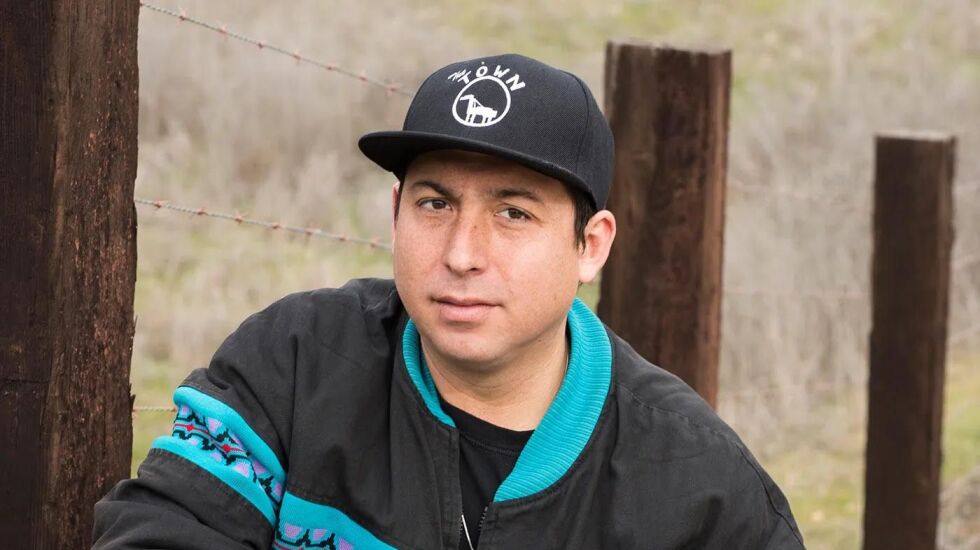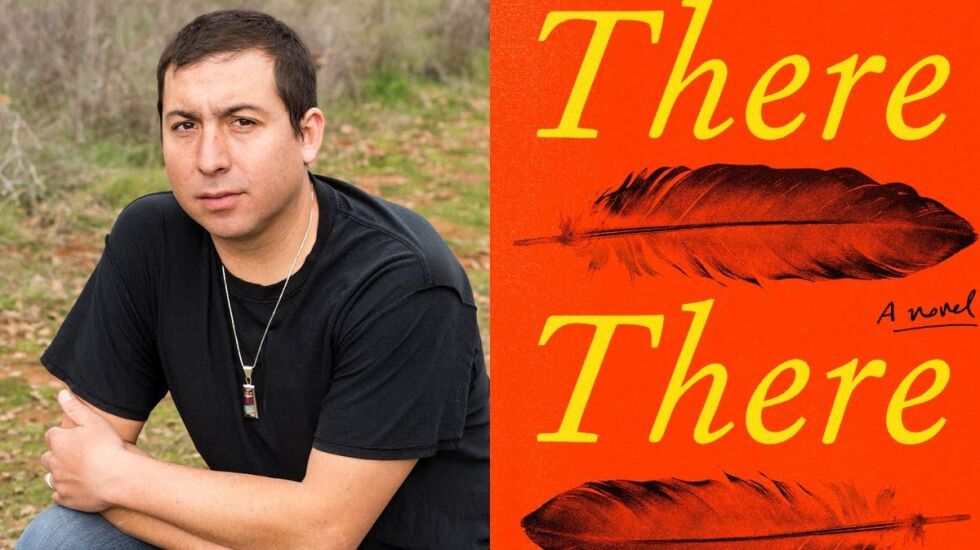
The Chicago Public Library has selected the novel “There There” by Tommy Orange as its 2023 One Book, One Chicago pick.
“There There” follows 12 characters who are all headed to a powwow at the Oakland Coliseum in California. Readers learn how they’re all connected, why they’re going and about a plot to steal $50,000.
Orange is the first Native American author to be selected in the program’s 22-year history.
WBEZ reporter Adora Namigadde spoke with Orange about his bestselling novel and goal of highlighting lesser-discussed aspects of Native American history. The interview was edited for length and clarity.
What was your reaction to the news?
This has happened in a few cities, and it’s always pretty overwhelming. It happened in Oakland and San Francisco, my hometown. I’ve always loved Chicago. I worked for a nonprofit and Native American organization, and I got to go to the Indian Center in Chicago. It was kind of the beginning of my understanding of how many Native people are based in cities and the history of that. It’s just an honor for that many people to be paying attention to the book to me.
You’ve said in the past that you wrote “There There” to set the record straight. Can you elaborate more on what that means and what inspired you to tell a story centering on Native American experiences?
Growing up, and even in my son’s time — because he’s now 12 — the way that we talk about Native people in this country still today is really wrongheaded and destructive. Especially to Native students who only see themselves in relation to pilgrims. I wrote a contemporary story purposely to resist this idea that we’re already gone, which is the way that it’s institutionally taught across the country. There was a poll done, not that long ago, that said that 40% of [survey respondents] don’t think that Native people exist anymore. I think the word that they might have used was “extinct,” which is also a very wrong way to talk about people. We’ve been dehumanized in so many different ways.

Many more Chicagoans are going to be introduced to your work. What will they gain by reading your book?
Chicago and Oakland share some similarities, and it’s a hub for urban Native life. They’ll see themselves or an aspect of Chicago that they didn’t know about reflected. There’ll be some things that they’ll recognize about open experience. Relocation is not something that a lot of people know about. The U.S. government really made an effort to get people off of reservations and to cities in order for us to assimilate and essentially disappear and lose our citizenship as tribal members.
But we ended up starting Indian centers like the one in Chicago. All these different Native organizations started up and created this community of intertribal people. I would hope that Chicagoans would be happy to learn this rich aspect of their history among the many rich aspects of Chicago history.
Libraries around the country are under attack as groups try to ban books. What’s been your relationship to public libraries?
I wasn’t really a reader growing up. And I remember the only reason I really wanted to read books in the summer was because the Oakland Public Library, my local branch down the hill from us, would give you [Oakland] A’s tickets if you read a certain amount of books. It really was about going to see baseball as an incentive to read. I didn’t become a reader until after I graduated from college, which sounds weird because you have to read a lot to graduate from college. But I went to school for sound engineering, and I think I read maybe one book in that program because it was very much like a technical school. After I graduated from that program, I ended up getting a job at a used bookstore and started reading fiction for the first time.
What’s next for your writing career?
I have a book coming out in March, and it is a kind of sequel and prequel to “There There.” It goes back into history starting in 1864 with the Sand Creek Massacre and somebody running away from that and goes into the boarding school system. Then you find out that one of the families from there [is part of] the family line that you’ve been following.
“There There” sold TV rights. But that’s all on pause because of the [SAG-AFTRA] strike.
Adora Namigadde is a metro reporter for WBEZ. Follow her at @adorakn.







